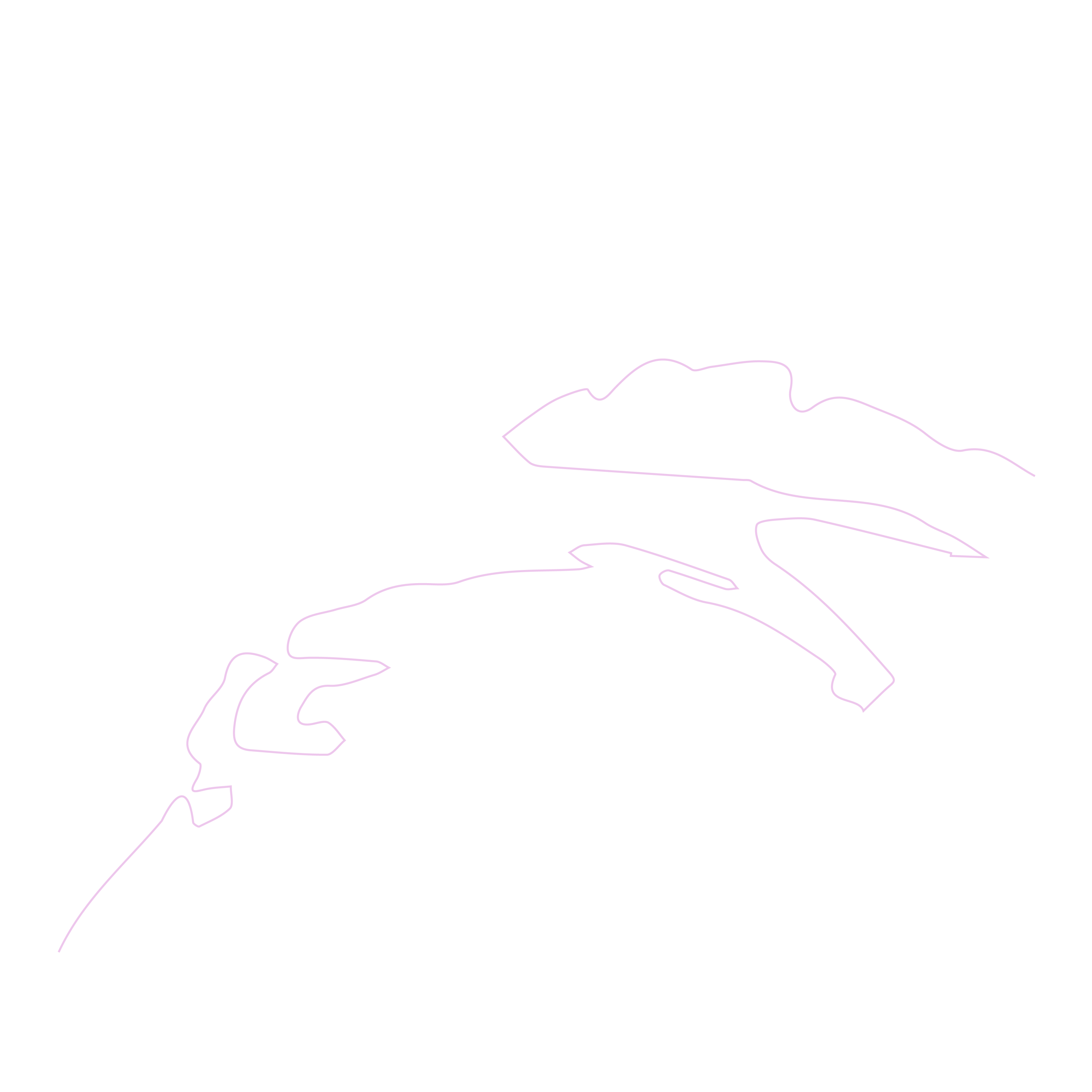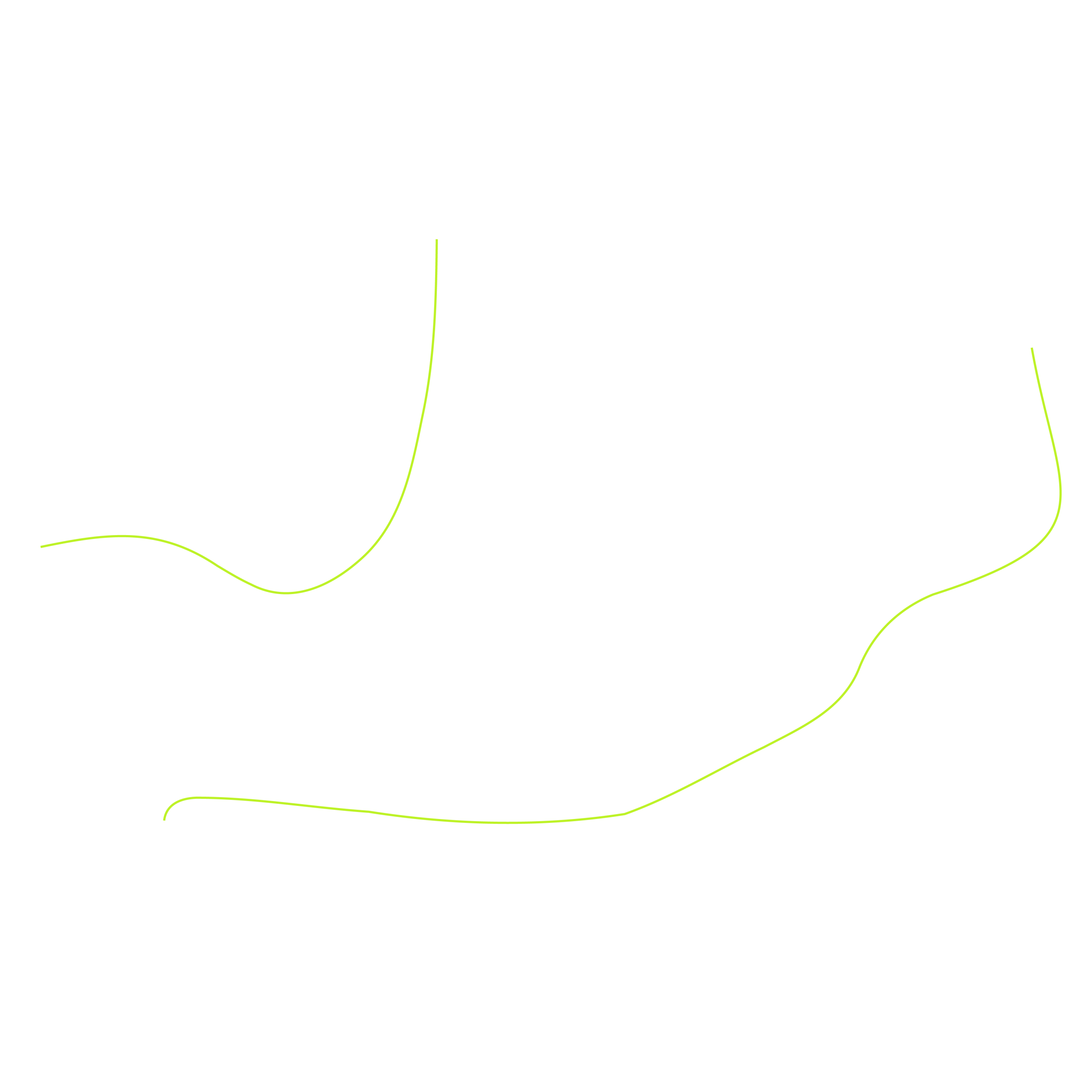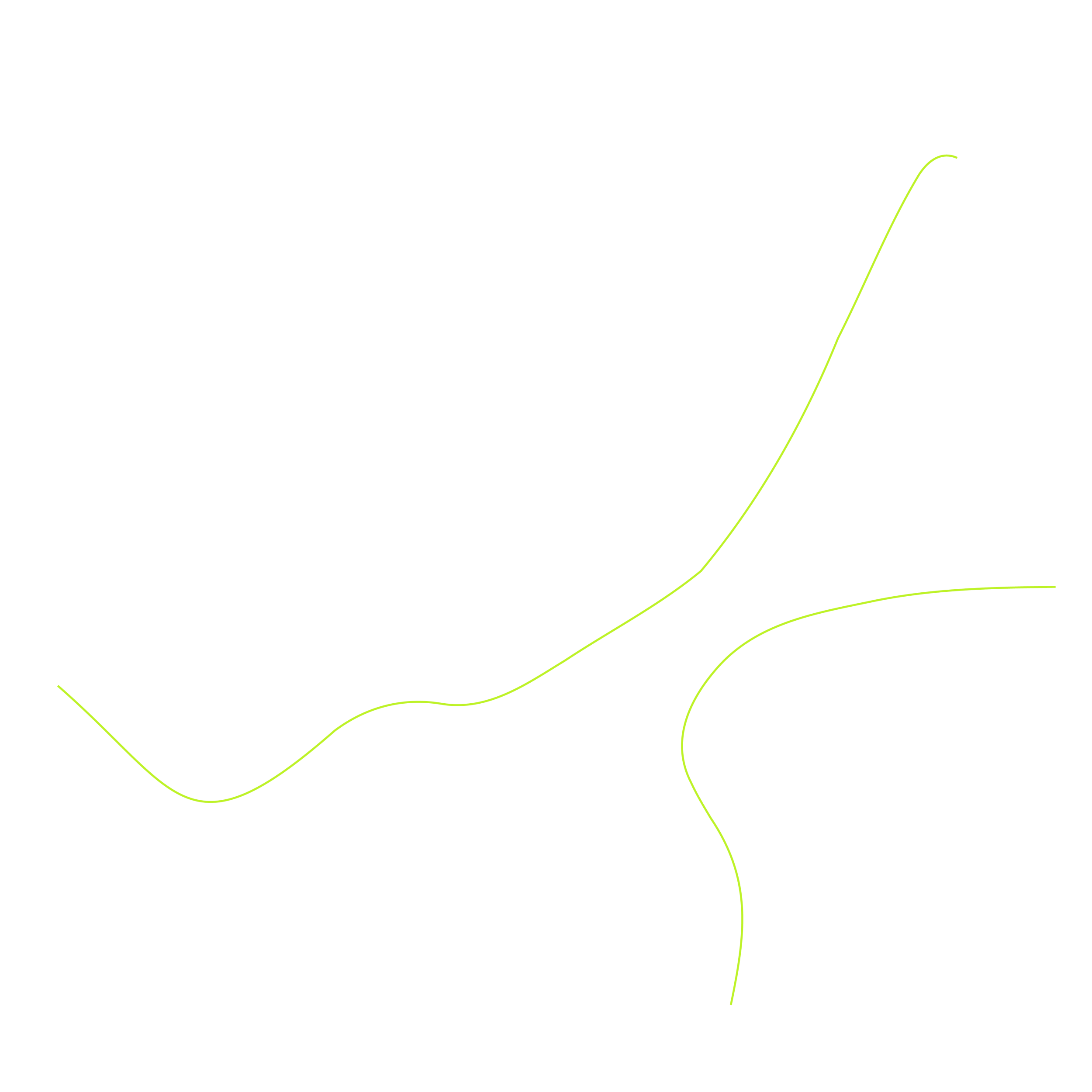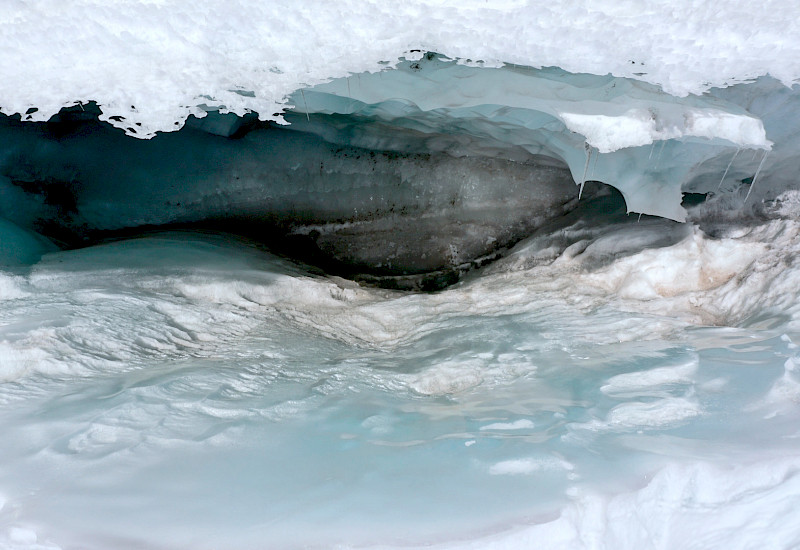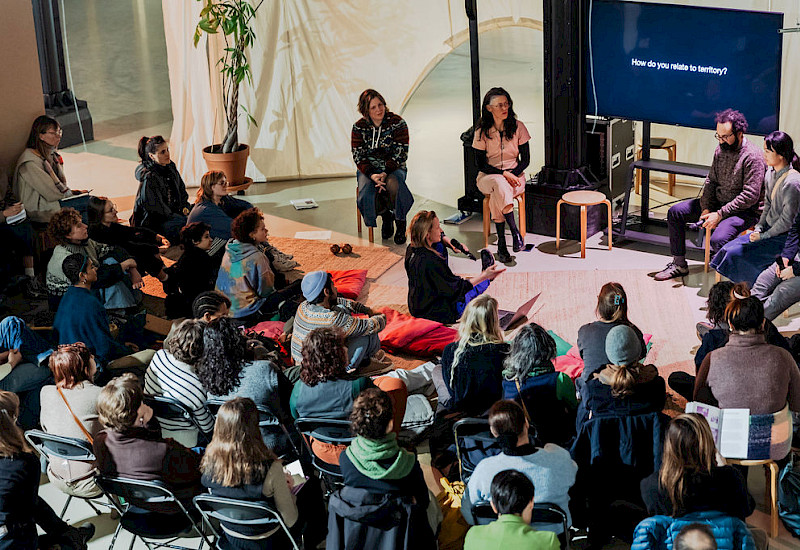reschooling-with is a living platform for learning, unlearning, and weaving solidarity through art, embodied research, ancestral practices, pedagogical experiments, and eco-social action.
We create collaborative spaces to grow our capacities to respond to the urgencies of our time—climate collapse, genocides, extractivism, rising white supremacy, and fascism. We engage in collective inquiry and relational practices grounded in humility, refusal, and care. Our work cultivates the conditions for other possibilities—ancestral, fugitive, and radical—to take root and grow.
Our work flows through two interconnected streams un/learning and long weavings.
un/learning
un/learning offers courses and trainings that support the ongoing work of unlearning colonial logics while relearning relational and decolonial practices. See comparison here.
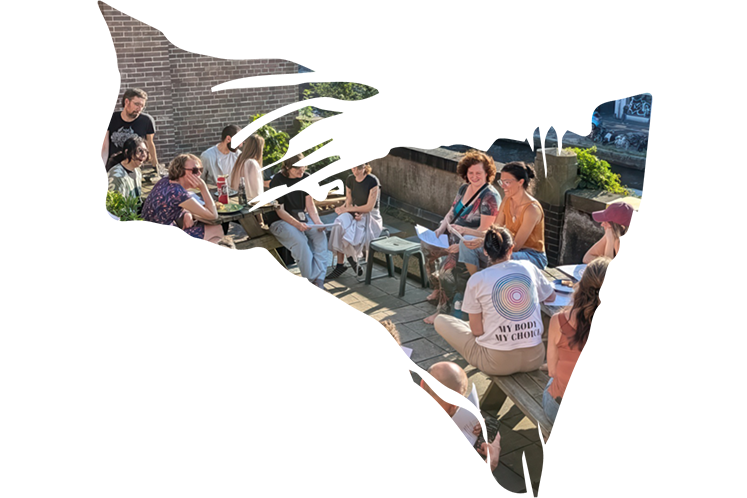
Ongoing
View past
Fermentation and Anti-Fascist Living
SALT: Fermentation and Anti-Fascist Living
Reschooling Community Gathering @ RADIUS
Glacial Conversations
Autumn Attunement
long weavings
long weavings sustain slow, collaborative projects of artistic solidarity, nurturing relationships of mutual care across territories and struggles.
Why now?
What forms of resistance, repair, or reimagining are called for in these urgent times? How do we create the conditions for other possibilities to emerge?
These are the questions we are sitting with. The collapse of life-support systems is unfolding before our eyes. We stand at the edge of the end of the world as we’ve known —a moment powered by racial capitalism, white supremacy, techno-fascism, patriarchy, and colonial violence. We must create spaces to collectively explore what is required of us at this time, and weave our responses with care, humility, and fierce refusal. Read more



